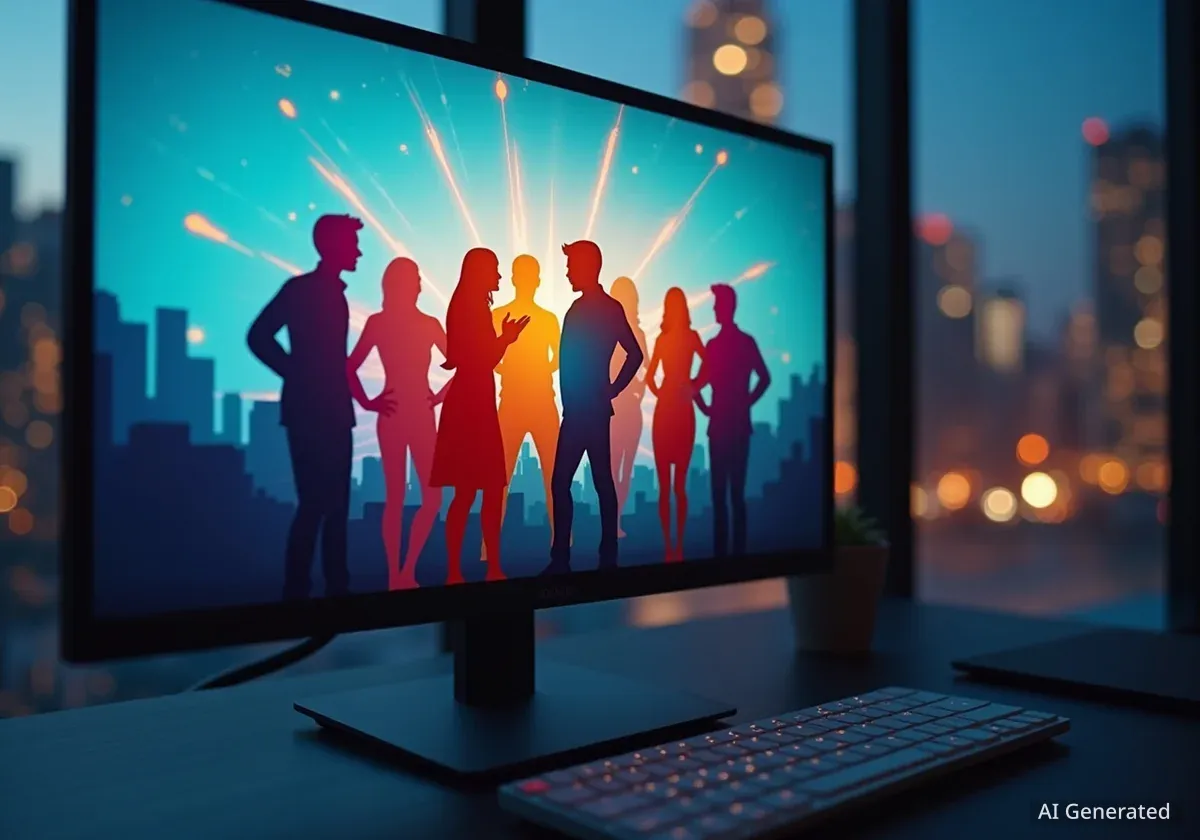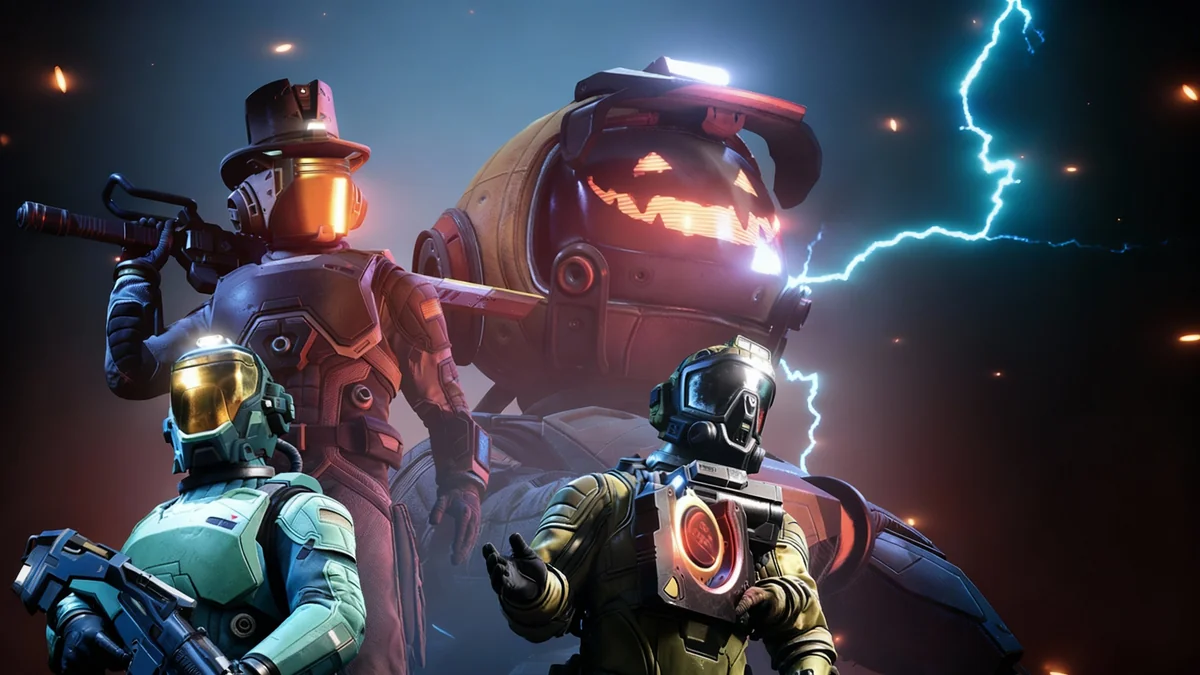Players of the popular life-simulation game The Sims are expressing significant concern following reports of a potential acquisition of its publisher, Electronic Arts (EA). The community fears that a change in ownership, particularly involving investors from regions with stricter social norms, could undermine the game's long-standing commitment to inclusivity and representation.
Key Takeaways
- The Sims player community is concerned about reports of a potential EA acquisition by investors, including those linked to Saudi Arabia.
- Players fear the game's progressive values, such as LGBTQ+ representation and customizable identities, could be at risk.
- For over two decades, The Sims has been considered a "safe space" for self-expression by many in its community.
- Concerns also include a potential loss of corporate transparency if EA, a publicly-traded company, were to be taken private.
A Legacy of Inclusivity Under Scrutiny
For more than 20 years, The Sims franchise has evolved from a simple life simulator into a complex digital world celebrated for its progressive features. The latest installment, The Sims 4, has been particularly noted for its efforts in representation, a core reason many players feel a deep connection to the series.
The game allows for extensive customization that goes beyond simple aesthetics. Players can create characters, known as "Sims," with a wide range of gender identities, select preferred pronouns, and define romantic and physical attractions without restrictions. This level of freedom has made the game a sanctuary for many, especially within the LGBTQ+ community.
Milestones in Sims 4 Representation
Over the years, developer Maxis has introduced numerous free updates to enhance inclusivity. These include the addition of customizable pronouns in 2022, expanded gender options allowing for fluid physical frames and clothing preferences, and a variety of medical wearables like hearing aids and glucose monitors. These features have been widely praised for making the game more reflective of the real world.
This history of thoughtful inclusion is now at the center of community anxiety. The fear is that new ownership might not share the same values that have become integral to the game's identity, potentially halting or even reversing this progress.
Acquisition Reports Fuel Community Concern
The recent wave of concern was triggered by reports and rumors circulating within the gaming industry about a potential sale of Electronic Arts. Among the potential buyers mentioned in these reports are entities connected to Saudi Arabia's Public Investment Fund (PIF) and other private investors.
While no official sale has been confirmed, the prospect alone has been enough to cause alarm among longtime fans of The Sims. The primary concern revolves around Saudi Arabia's human rights record and its conservative cultural laws, which stand in stark contrast to the liberal and inclusive environment fostered within The Sims.
Players have taken to social media platforms and forums to voice their worries. Many question whether a company under new ownership with different cultural standards would continue to approve content that supports diverse identities and lifestyles.
"The Sims has been a place where I could be myself without judgment since I was a kid," one player wrote on a popular fan forum. "The thought of that changing is genuinely scary. It's more than just a game for a lot of us."
This sentiment reflects a broader feeling that the game's core identity is intertwined with its progressive stance, and any threat to that is seen as a threat to the game itself.
The "Safe Space" and Fears of Lost Transparency
A recurring theme in the community's response is the description of The Sims as a "safe space." For decades, players have used the game to explore different aspects of their identity, build dream lives, and experiment with self-expression in a consequence-free environment. This is particularly true for younger players and individuals from marginalized communities.
Many players credit the game with helping them understand their own identities. The ability to create same-sex relationships, explore non-binary gender expressions, and live out scenarios not possible in their real lives has had a formative impact on a generation of users.
More Than Just a Game
According to community discussions, many players feel The Sims provides a form of escapism where they can live lives free from real-world prejudice. The potential for this digital sanctuary to be altered by external corporate or cultural pressures is the primary driver of the current backlash.
Beyond the cultural implications, there are also practical concerns about corporate structure. EA is currently a publicly-traded company, which requires it to adhere to certain levels of financial and operational transparency. If the company were to be taken private in a buyout, it would no longer be subject to the same public disclosure requirements.
Players worry that a move to go private could result in less accountability. It would become more difficult for the community and the press to get clear information about development decisions, content changes, and the overall direction of the company and its games. This lack of transparency, combined with concerns over the potential new stakeholders' values, has created a deeply unsettled feeling among the player base.
The Future of a Digital Legacy
As the situation stands, the future of The Sims remains a topic of intense speculation. The community's reaction highlights the unique position the franchise holds in the video game landscape. Unlike many other major titles, its value to players is deeply connected to its social and cultural ethos, not just its gameplay mechanics.
For millions of players, The Sims is not just an entertainment product but a cultural touchstone that has championed diversity and personal freedom. The ongoing discussions underscore how deeply players are invested in preserving this legacy.
The outcome of any potential acquisition remains uncertain, but the player community has made its position clear. They are watching closely, hopeful that the inclusive world they have cherished for over two decades will be protected, regardless of who is in charge.





